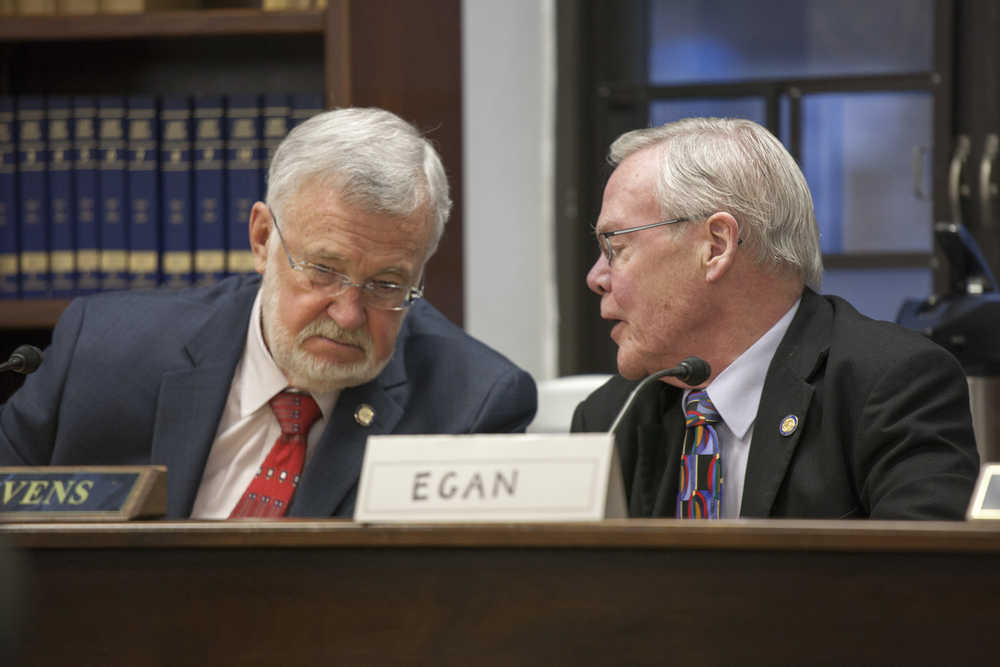JUNEAU — A legislative committee on Monday found that attendance at the increasingly popular lunchtime presentation series at the state Capitol could violate ethic rules covering lawmakers and their staffs, and the issue could be avoided if the meals don’t cost too much or other legislative work isn’t being ignored to attend the session.
The Select Committee on Legislative Ethics issued a formal advisory opinion on questions surrounding the Lunch and Learn events, which are an opportunity for people to hear from presenters on a wide variety of topics in a casual setting.
The committee found that attending the sessions could constitute certain types of ethical violations for lawmakers and their staffs. But the opinion doesn’t change the way that Lunch and Learns work for now, because the possibility of an ethical violation is different from an actual violation.
“I think there’s a lot of questions about Lunch and Learns. Not all were answered,” said Jerry Anderson, administrator of the legislature’s Select Committee on Legislative Ethics. He said it’s “no secret” that it has continued to be an issue.
Some of the Lunch and Learn sessions are related to pending legislation, some not. Discussions in the last year included topics on Medicaid expansion, drones, salmon, etc.
Attendees watch a presentation in a state facility and, typically, the presenter provides a free meal. Videos of the events are archived at the public affairs channel.
After questions were raised if these sessions blur the line between education and advocacy, the offices in the House and Senate that set the rules for each chamber asked the ethics committee to help set guidelines for the events.
The committee found the events could be considered a private benefit to the event presenter and there could be ethical concerns in allowing a person the opportunity to provide a free meal to legislators and legislative staff, but gave leeway to both decisions.
Legislators or legislative employees cannot use public funds or space to support a partisan political activity or privately benefit any person.
Since Lunch and Learn events do create an opportunity for the presenter to access legislators, the committee determined that a legislator or legislative employee can attend as long as it does not interfere with their normal duties or cost the state more than a nominal amount.
Lunch and Learn events could also violate a prohibition against using government assets or resources for a person’s private benefit. According to the ethics committee ruling, the event would have to cost the state more than a “nominal” amount or take up space needed by legislators or their aides for other government purposes to run afoul of the ethics rules.
Legislators sponsoring Lunch and Learns must secure use of a room. Registered lobbying groups, other organizations or lawmakers can buy the food.
The Lunch and Learns could also raise ethical concerns under the Legislative Ethics Act depending on the facts of a case.
As an example, the opinion cited state law which says legislators or legislative employees can accept gifts worth less than $250 from the same lobbyist in a calendar year. If a lobbyist buys a lunch for $10 at one of these events, that will count against the $250 yearly limit.
Other potential ethical concerns raised in the opinion included Lunch and Learns that had a political or campaign purpose, which could open the lawmaker to the appearance of a conflict of interest.

